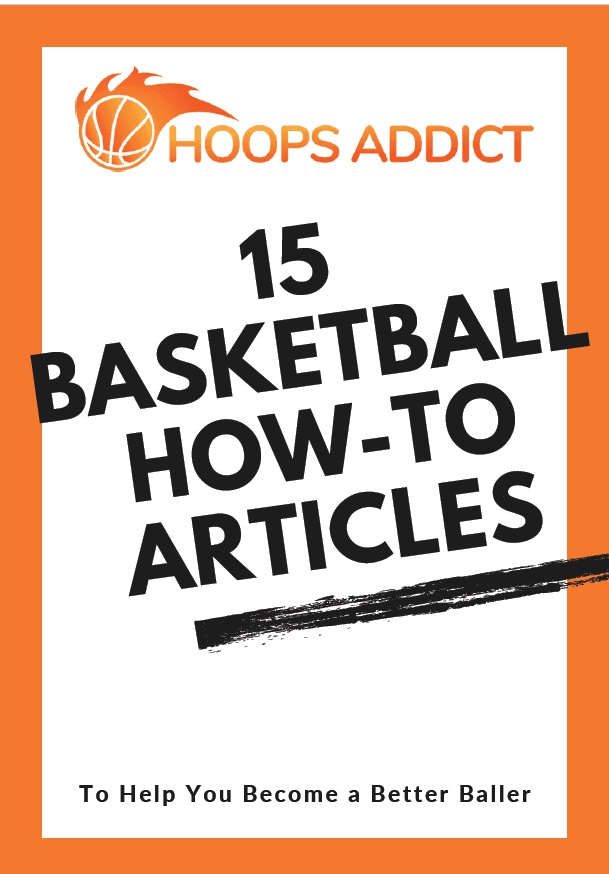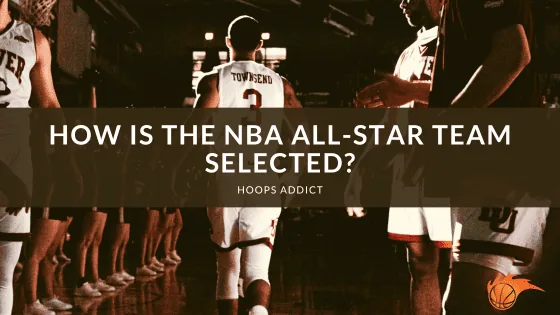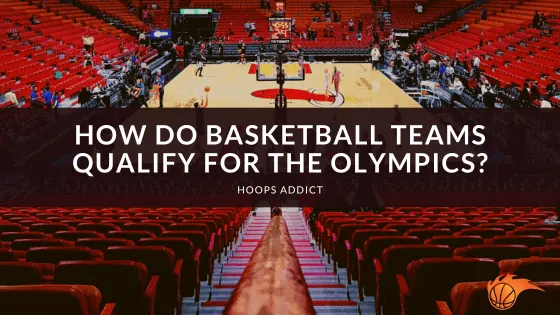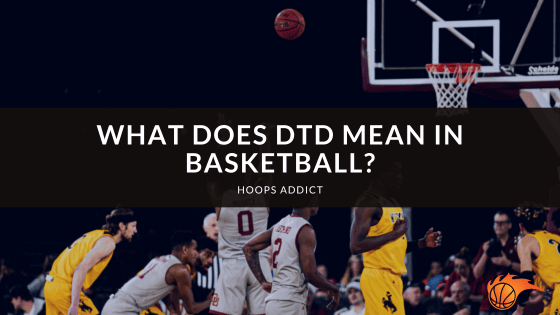Signing an NBA contract is the dream of most professional basketball for two reasons. One, it shows that they’ve made it to the top, and two, it means they could be in it for life-changing money.
If you’re a basketball fan, you’ve probably heard about the ungodly amounts of money NBA players make each season. But have you ever wondered what happens to a player if the team simply decides to cut ties, perhaps because of injuries or other basketball-related reasons? This article explores the complexities of NBA contracts and addresses the burning issue at hand: Are NBA contracts guaranteed? You are about to find out.
 How Do NBA Contracts Actually Work?
How Do NBA Contracts Actually Work?
Before delving into the inner workings of NBA contracts, it’s necessary to understand how these agreements are structured. NBA contracts are typically signed for a certain number of years, with a fixed payment for each year. For example, if a player signs a four-year, $50 million contract, the player receives $12.5 million every year under the contract terms.
However, not all contracts are created equal. A player may sign either guaranteed or non-guaranteed deals. Guaranteed contracts provide assurance that a player will earn the entirety of their agreed-upon salary regardless of whether they are injured or cut from the squad.
Examples of guaranteed contracts are the Rookie Scale Contract (partially guaranteed for the first two years), the 10-day contract, the Max Contract, and the Supermax contract (otherwise called the “Designated Veteran Player Exception”).
The NBA non-guaranteed contracts are the opposite of guaranteed contracts. The player’s salary is not guaranteed, which means he may only be given a portion of his salary in case he gets waived or cut from the team for any reason. Non-guaranteed contracts are common for players who must prove themselves to make a roster spot and show teams what they can do.
Nevertheless, there are exceptions to every rule, whether a contract is guaranteed or non-guaranteed. For instance, if a non-guaranteed contract player gets injured under the team’s watch, the team is responsible for his salary. Or a player with a non-guaranteed deal may try to secure a clause that guarantees a portion of the salary depending on a specific trigger date.
Examples of NBA non-guaranteed contracts are two-way and Exhibit 10 contracts.
 How Does Guaranteed Money Work in NBA?
How Does Guaranteed Money Work in NBA?
Most NBA contracts are guaranteed, which means the majority of players secure the bag regardless if they’re injured or not. However, guaranteed money does not always work that way, especially for players who are not in the max or supermax money range. More often than not, a minimum amount of money is guaranteed to the player according to the Collective Bargaining Agreement.
Are NBA contracts guaranteed money for the players? Yes and no. For example, the Rookie Scale Contract is actually a partially guaranteed deal that could become fully guaranteed depending on a team’s moves. Rules stipulate that the organization must guarantee the first two seasons but may or may not pick up the option for the player’s third and fourth years.
In 2021, the Phoenix Suns’ declined to pick up the option on Jalen Smith’s third year, so the guaranteed money on Smith’s rookie contract is only two years. Rejecting the option for a player’s third or fourth year sends him straight to unrestricted free agency.
Then, there are buyout negotiations, in which the player takes less money to get the freedom to sign with a team of his choice. Russell Westbrook got bought out near the 2023 trade deadline and signed with the Clippers after clearing waivers.
Despite its noble goal, guaranteed contracts may backfire on certain occasions. They give stability and security to the stars, which can contribute to a more cohesive team environment. On the other hand, if a star player underperforms or gets injured, the team is still obligated to pay their entire contract, which may be a substantial financial strain going forward.
On the other end of the spectrum, non-guaranteed deals may end up being the best bang for the buck for NBA teams. Fringe NBA players often use these as motivators, and some perform better than expected to secure a guaranteed contract. Still, players outperforming these types of deals are unusual but hardly rare.
 How Much of NBA Players’ Contracts are Guaranteed?
How Much of NBA Players’ Contracts are Guaranteed?
The overwhelming majority of NBA players have guaranteed contracts. There is currently no player in any roster with a non-guaranteed deal, although that could still change. In the case of a specific contract’s partial guarantee, these details are not often disclosed, and the percentage of the guarantee varies from player to player.
Most NBA players on non-guaranteed and partially guaranteed deals have trigger date clauses that enable their contracts to turn into fully-guaranteed ones. The general trigger date in the 2022-23 season is January 7, 2023. Any player with these types of deals becomes fully guaranteed if they remain with the team beyond the date.
However, some players operate on earlier trigger dates. For instance, the Spurs’ Zach Collins has a partially-guaranteed $3.67 million deal that could turn into a fully-guaranteed $7.35 million if he remained with San Antonio until June 24, 2022. Needless to say, Collins has been paid the whole salary for being with the Spurs until the season’s end.
 5 Biggest Contracts in NBA History
5 Biggest Contracts in NBA History
NBA players have signed some gargantuan contracts, which will only get bigger and bigger as the league secures more and more revenue. The following are the top five biggest contracts in NBA history, and unsurprisingly, it contains some of the most recognizable names in basketball today:
1. Nikola Jokic (2023-2027)
The supermax contract of Nikola Jokic won’t kick on until next year, but it’s currently the biggest contract in league history: $272,020,000 over five years. That gives the two-time MVP an annual average value (AAV) of $54.4 million.
Denver Nuggets two-time MVP Nikola Jokic has agreed to the largest deal in NBA history – a five-year, $270M super maximum contract extension, his agents Jeff Schwartz and Mike Lindeman of @Excelbasketball tell ESPN. Deal includes player option and trade kicker.
— Adrian Wojnarowski (@wojespn) July 1, 2022
2. Bradley Beal (2022-2026)
Beal signed his supermax last year worth $251,019,650. That gives the Wizards guard an AAV of $50,203,930. With the Wizards out of the 2023 playoff picture, it’s safe to say Beal has been underperforming.
3. Giannis Antetokounmpo (2021-2025)
By the time Giannis’ five-year, $228,200,420 contract expires in 2026, he will still be 32 years old. He could be in line for a second supermax deal barring any serious injury. Currently, the Greek Freak settles for an AAV of $45,640,084.
4. Devin Booker (2024-2027)
At only 25 years old, Booker is already eligible for a supermax worth $224,224,000 over four years. This amounts to an annual average salary of over $56 million. If the Suns can retain Kevin Durant for at least a couple of years, Phoenix’s championship window could be lengthened during Booker’s supermax years.
5. Karl-Anthony Towns (2024-2027)
KAT has signed a similar contract with his buddy Booker, but it remains to be seen whether he’s worth every penny. He has already missed a bunch of games since December 2022, and the Wolves’ Rudy Gobert experiment is not as seamless as it once thought.
Wrapping Things Up: Are NBA Contracts Guaranteed?
A lot of money has been thrown around NBA players’ contracts lately, but that has been due to the fact that the league is raking in better revenue than ever before. This directly leads to a larger salary cap, which, in turn, ramps up the value of player contracts.
The question that lingers in every fan’s mind is, “Are NBA contracts guaranteed?” The answer is not that simple, and specific contract structures must be included in the discussion to provide a semblance of clarity.
Most NBA contracts are guaranteed, while some are not. Even making it more complicated is the fact that the NBA also allows partially guaranteed contracts, which means players may only secure a portion of the deal if they don’t remain with the team for a specific trigger date. Therefore, it’s not unusual to see non-guaranteed contracts turn into fully-guaranteed ones as the season progresses.
Now, are NBA contracts guaranteed for injury? If a player is on a fully-guaranteed deal, he will still be paid the entire amount despite an injury or if he’s underperforming. Because of this scenario, guaranteed contracts can be debilitating for teams because an injured or underperforming player on a guaranteed max or supermax contract is almost impossible to trade. The franchise may take pennies for the dollar in such situations or wait until his last year to negotiate a trade or buyout.
We hope you enjoyed this post! If you did, be sure to check out our other basketball FAQ articles here.
> What Does the Rose Rule Mean?
Want to get better at basketball?
Join our newsletter & get our comprehensive
101-page basketball guide.
Become a better baller today 👇


 How Do NBA Contracts Actually Work?
How Do NBA Contracts Actually Work? How Does Guaranteed Money Work in NBA?
How Does Guaranteed Money Work in NBA? How Much of NBA Players’ Contracts are Guaranteed?
How Much of NBA Players’ Contracts are Guaranteed? 5 Biggest Contracts in NBA History
5 Biggest Contracts in NBA History

